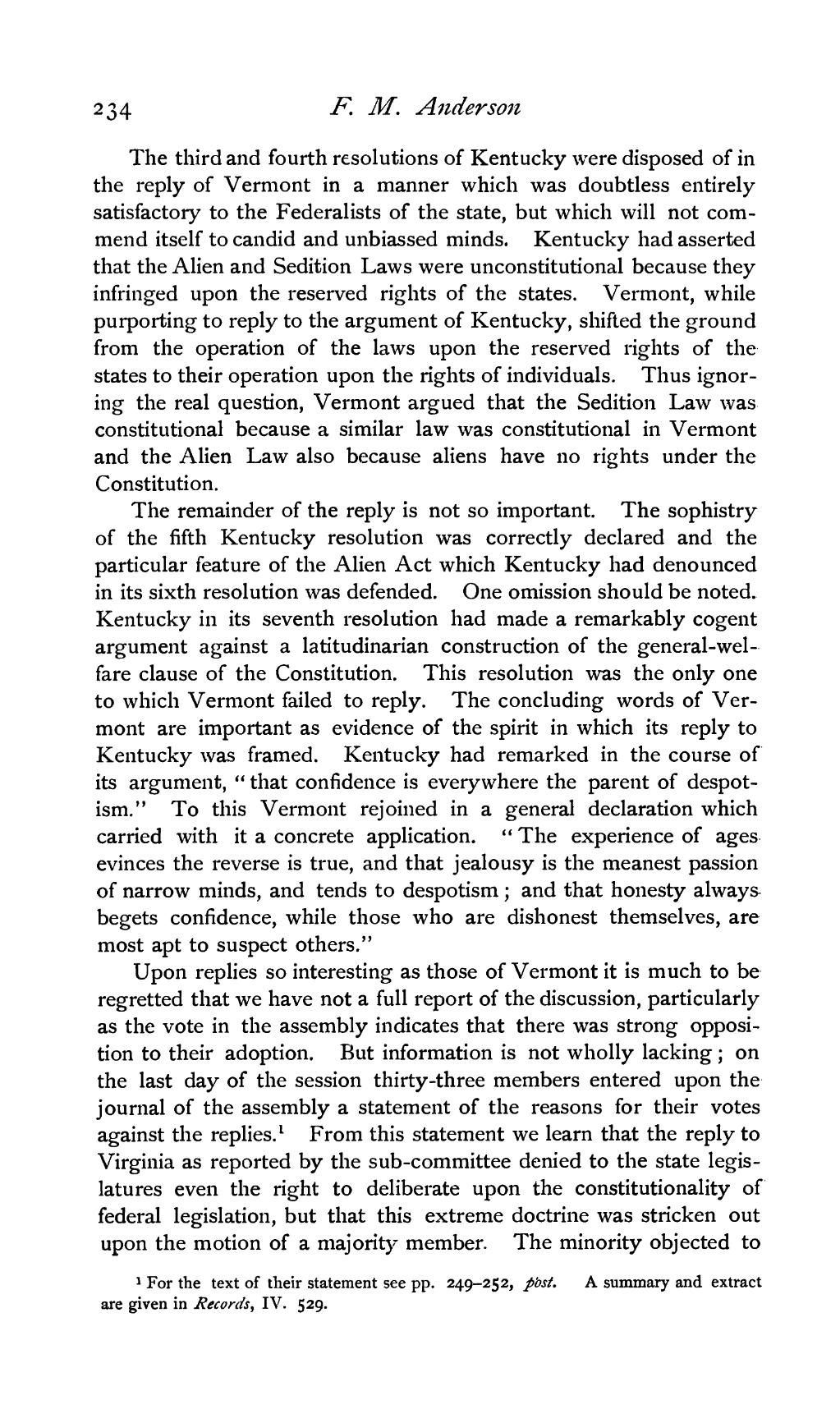The third and fourth resolutions of Kentucky were disposed of in the reply of Vermont in a manner which was doubtless entirely satisfactory to the Federalists of the state, but which will not commend itself to candid and unbiassed minds. Kentucky had asserted that the Alien and Sedition Laws were unconstitutional because they infringed upon the reserved rights of the states. Vermont, while purporting to reply to the argument of Kentucky, shifted the ground from the operation of the laws upon the reserved rights of the states to their operation upon the rights of individuals. Thus ignoring the real question, Vermont argued that the Sedition Law was constitutional because a similar law was constitutional in Vermont and the Alien Law also because aliens have no rights under the Constitution.
The remainder of the reply is not so important. The sophistry of the fifth Kentucky resolution was correctly declared and the particular feature of the Alien Act which Kentucky had denounced in its sixth resolution was defended. One omission should be noted. Kentucky in its seventh resolution had made a remarkably cogent argument against a latitudinarian construction of the general-welfare clause of the Constitution. This resolution was the only one to which Vermont failed to reply. The concluding words of Vermont are important as evidence of the spirit in which its reply to Kentucky was framed. Kentucky had remarked in the course of its argument, "that confidence is everywhere the parent of despotism." To this Vermont rejoined in a general declaration which carried with it a concrete application. "The experience of ages evinces the reverse is true, and that jealousy is the meanest passion of narrow minds, and tends to despotism; and that honesty always begets confidence, while those who are dishonest themselves, are most apt to suspect others."
Upon replies so interesting as those of Vermont it is much to be regretted that we have not a full report of the discussion, particularly as the vote in the assembly indicates that there was strong opposition to their adoption. But information is not wholly lacking; on the last day of the session thirty-three members entered upon the journal of the assembly a statement of the reasons for their votes against the replies.[1] From this statement we learn that the reply to Virginia as reported by the sub-committee denied to the state legislatures even the right to deliberate upon the constitutionality of federal legislation, but that this extreme doctrine was stricken out upon the motion of a majority member. The minority objected to
- ↑ For the text of their statement see pp. 249–252, post. A summary and extract are given in Records, IV. 529.

